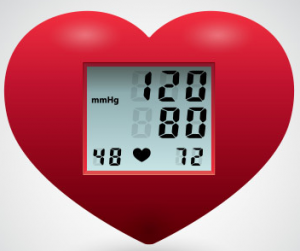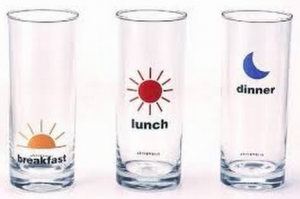 If you have read any of my previous posts promoting natural blood pressure solutions, you will know that my approach for keeping blood pressure issues in check predominantly involves a three-pronged approach, which can be neatly summed up by the acronym
If you have read any of my previous posts promoting natural blood pressure solutions, you will know that my approach for keeping blood pressure issues in check predominantly involves a three-pronged approach, which can be neatly summed up by the acronym
D E S
- Diet
- Exercise and Activity
- Stress Management
Whilst all three play an integral part in helping to manage blood pressure, for me DIET is always the first area I would consider looking at in more detail.
You see, over the last 30-40 years the average Western diet has deviated so far from providing the essential nutrients in the right ratios for optimal functioning of the body that there is little wonder that we are seeing an upsurge in factors which ultimately lead to poor, or deteriorating health, such as Diabetes, Obesity, Cardiovascular diseases, increased risk of stroke … and yes, of course, High Blood Pressure.
And what’s more disturbing is the fact that these markers for bad health are being seen nowadays in younger age groups, including increasingly in children.
This is truly alarming!
In this post I am going to consider an aspect of diet which at first glance may not seem to be directly relevant to actual diet, but which can have a role to play in the successful management of blood pressure. The question I am looking at today is namely …
Can FASTING lower Blood Pressure?
TYPES OF FASTING
Not surprisingly the initial thing to be aware of when considering adding fasting to your routine for keeping blood pressure at check is to be aware that there are different types of fasts. So a quick overview of the most common forms of fasting would be useful to start off with!
These are the most common forms:
- Dry Fast - the most complete (and harshest) form of fasting involving complete abstinence from food and water for a certain length of time.
- Liquid Fast - could consist of Water Fast, or Juice Fast of some type.
- Intermittent Fast - this can include fasting on alternate days, or removing one meal from the daily diet.
- Partial Fast - limiting the amount of certain food groups consumed, e.g. carbohydrates from the diet, or at the very least limiting the overall number of calories consumed per day.
Whilst fasting has been adopted as one way to promote weight loss, and has thus garnered a reputation of being somewhat of a diet fad, there is a small body of research which suggests fasting can be beneficial for regulating glucose which can protect against Diabetes… and also for actually lowering blood pressure which is what we are interested in today.
WORD OF CAUTION:
Just a word of caution before we continue… starting a fasting regimen requires some planning - please don’t simply jump into it at the deep end by attempting a full on fast without having done some good research into the topic.
Moreover, if you are already taking medications for high blood pressure, you will most definitely need to consult with your medical professional first. It is possible to overdo the fasting which in itself can pose some potential health risks, and this obviously is not something anyone wants to be dealing with.
Fasting, especially when it comes to the more severe forms such as the Dry Fast, Water Fast - and less so for the Juice Fasts and Intermittent Fasts - will have the effect of cleansing and detoxifying the body, so some side effects, such as headaches, lethargy and general feeling of malaise can be encountered initially until your body adjusts.
DOES FASTING LOWER BLOOD PRESSURE?
Although there are not a plethora of studies out there which have reviewed the benefits of fasting on high blood pressure, there are a few which are indeed worthy of mention due to the encouraging results which they provided. And of added interest is that each study looked at a different form of fasting and found a similar outcome.
The first study focussed on a group of 110 extremely obese patients who were actually hospitalized so that they could be monitored closely over the three weeks of treatment involving a fasting diet. Factors such as blood pressure, blood glucose and insulin sensitivity were all measured throughout the process.
The outcome results showed an improvement in both systolic and diastolic readings, with the systolic being reduced from 143 mm Hg to 132 mm Hg and the diastolic from 92 mm Hg to 85mm Hg.
This, combined with an average drop of 14 kilograms in weight, demonstrates the effectiveness of a severe fast on an overweight subject group.
Admittedly, the test subjects and conditions were somewhat exceptional in that the participants were severely obese, and the fasting diet was implemented for three weeks in a highly supervised hospital setting.
So in this second study the benefits of a water only fast were explored by researchers. In this study published first in The Journal of  Manipulative and Physiological Therapeutics a total of 174 subjects with systolic blood pressure of 140 mm Hg, or higher and diastolic of 90 mm Hg were placed on an 11 day water fast, after preparing for the fast by eating only fruits and vegetables during the first 2-3 days.
Manipulative and Physiological Therapeutics a total of 174 subjects with systolic blood pressure of 140 mm Hg, or higher and diastolic of 90 mm Hg were placed on an 11 day water fast, after preparing for the fast by eating only fruits and vegetables during the first 2-3 days.
The results showed that 90% of the study subjects had their blood pressure fall from 140/90 mm Hg by a whopping average of 37 mm Hg for systolic pressure and 13 mm Hg for diastolic pressure! And researchers found that the individuals with the highest blood pressure levels had the most significant reduction in BP!
One more exciting discovery was that those participants (just over 6% of the total test subjects) who had been on anti-hypertensive medications prior to the study all found that due to the effects of the water fasting on their BP, they no longer needed to take the medications once the study was concluded.
One more study is noteworthy, and this involved intermittent fasting. The study itself which was featured in The Journal of Ayub Medical College Abbottabad (JAMC) focussed on the effects on blood pressure of the intermittent fasting which goes on during the month of Ramadan when practising muslims refrain from eating between the hours of dawn and dusk every day for the month.
The results again were encouraging as they showed a drop in blood pressure in the 40 test subjects of 7.61mm Hg on systolic and 3.19 mm Hg on diastolic readings after the fasting and before the evening meal of the day.
Admittedly, the participants being studied had BP levels in the normal range and were in the age group 18 - 40. However the study again supports the notion that fasting can help to reduce blood pressure
WRAPPING IT UP
So it does indeed appear that, according to the evidence presented from the research and studies completed thus far, FASTING can have a beneficial effect on blood pressure reduction. And it also seems that different forms of fasting can have similar effects.
As a neophyte myself when it comes to fasting I think I would approach this topic with some healthy circumspection. I would likely have a go at one of the milder forms of fasting such as Partial or maybe a 24-48 hour Juice Fast just to see how my body is going to react. And those planning longer fasts, for example more than 3 -5 days should seek guidance from a professional fasting clinic or practitioner before proceeding!
A useful and practical overview of how long to fast according to type of fasting may be found by clicking H E R E
Feedback
As Fasting is a new area of investigation for me, I would welcome comments from anyone who has had experience with FASTING as part of a natural blood pressure treatment intervention. I would love to hear any success stories, and also any pitfalls from any of you out there who are trying this particular approach!
